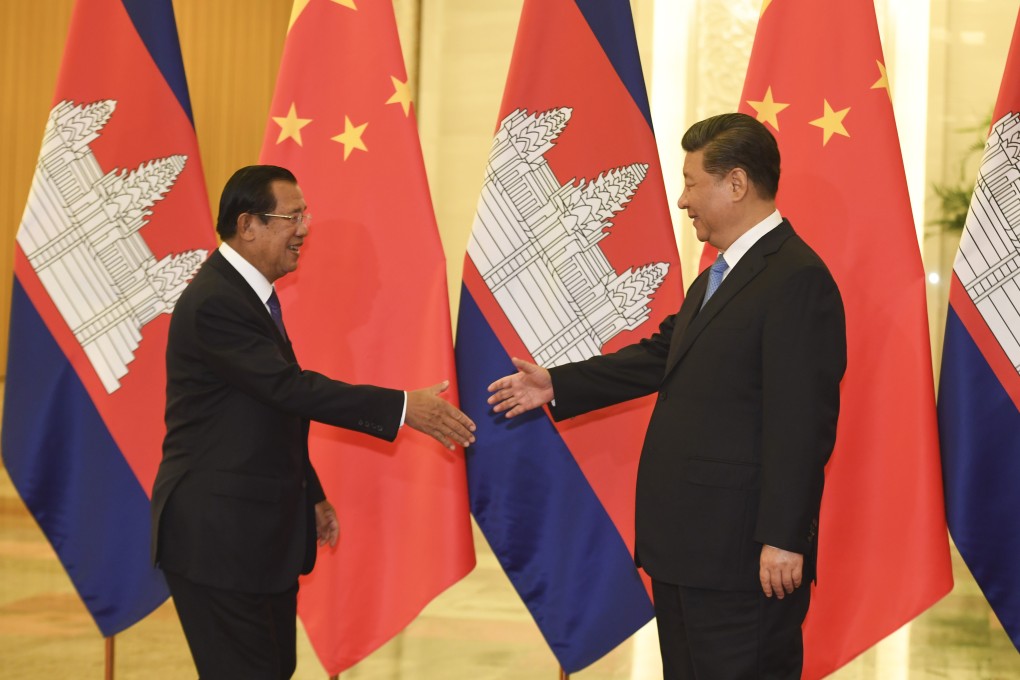Chinese investment in Cambodia is bringing Phnom Penh closer to Beijing – and further from the EU
- The Southeast Asian nation signed at least nine deals with China last week on the sidelines of the second Belt and Road Forum
- These investments have seen growing anti-Chinese sentiment, and some analysts say it is likely political obedience to China will include military access

Besides the defence funding, China agreed to up its imports of rice from 300,000 tonnes to 400,000 tonnes, and announced plans to launch a second phase of development in the coastal Sihanoukville province where it has already built over 100 casinos and dozens of hotels and resorts.
We are siblings who share a single future
Beijing also promised China would help Cambodia mitigate losses from possible European sanctions over human rights and other violations such as the pre-election arrest of main opposition leader Kem Sokha and the dissolution of his National Rescue Party.
“As comprehensive strategic partners and ironclad friends, we are siblings who share a single future,” Cambodian Prime Minister Hun Sen said of China’s relationship with Cambodia in a Facebook post following the forum.
To Astrid Noren-Nilsson, political scientist and lecturer at Lund University in Sweden, this is “a clear signal to the EU from China that it will step in where the EU pulls out”.
In February, the EU began the process of revoking a trade deal it signed with Cambodia, a de facto one-party state. Known as the Everything But Arms (EBA) deal, it allows underdeveloped nations to export all goods other than weapons without quotas or duties.
The potential withdrawal – prompted by Cambodia’s domestic political crackdown – will particularly impact its robust US$5 billion garment sector, which employs around 750,000 people. It is expected to cost the Southeast Asian country about US$676 million a year, according to a letter from Cambodia’s commerce minister to Hun Sen.